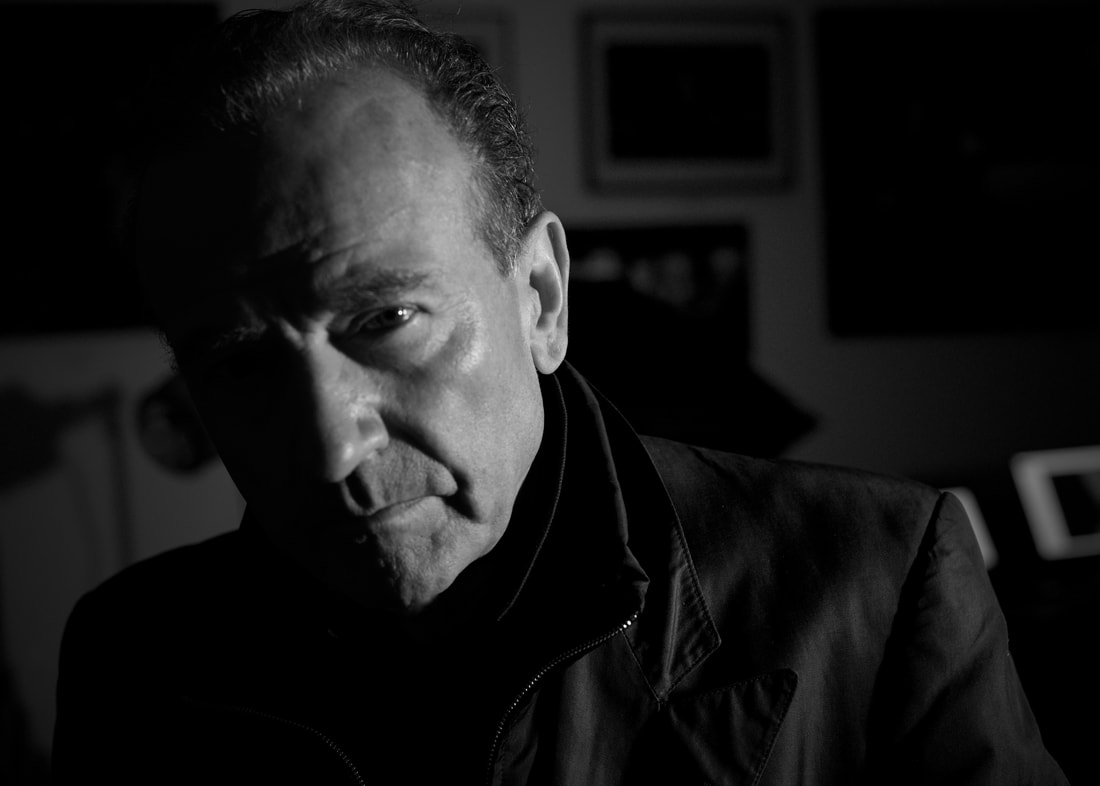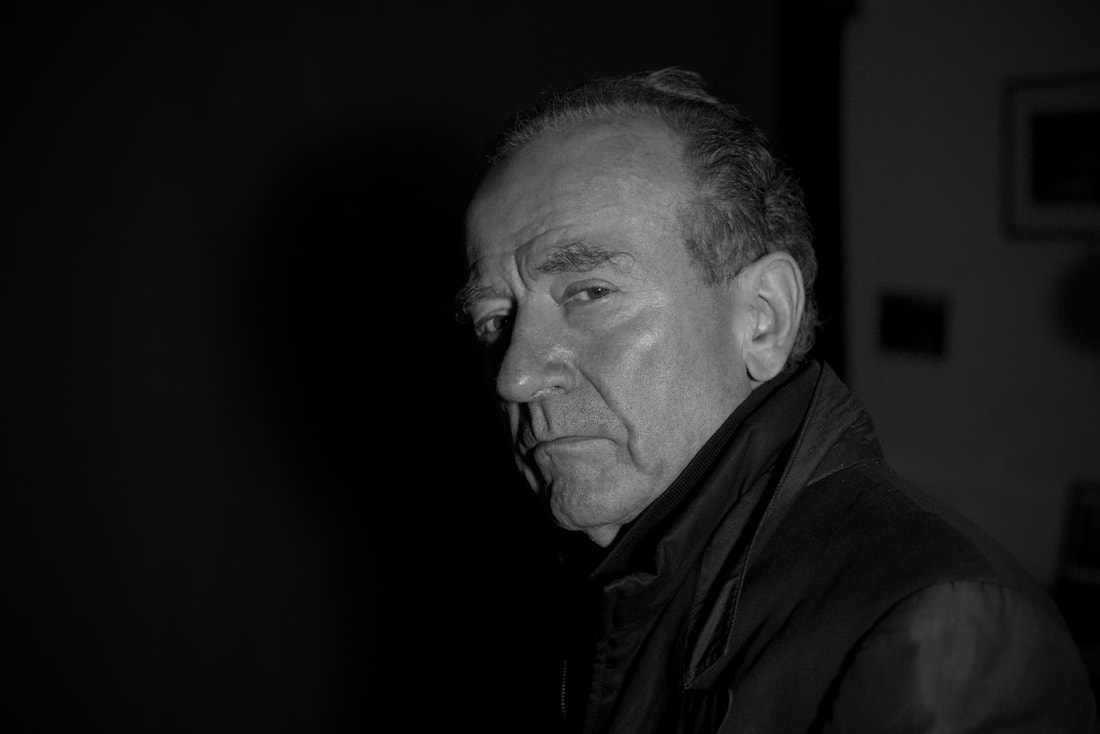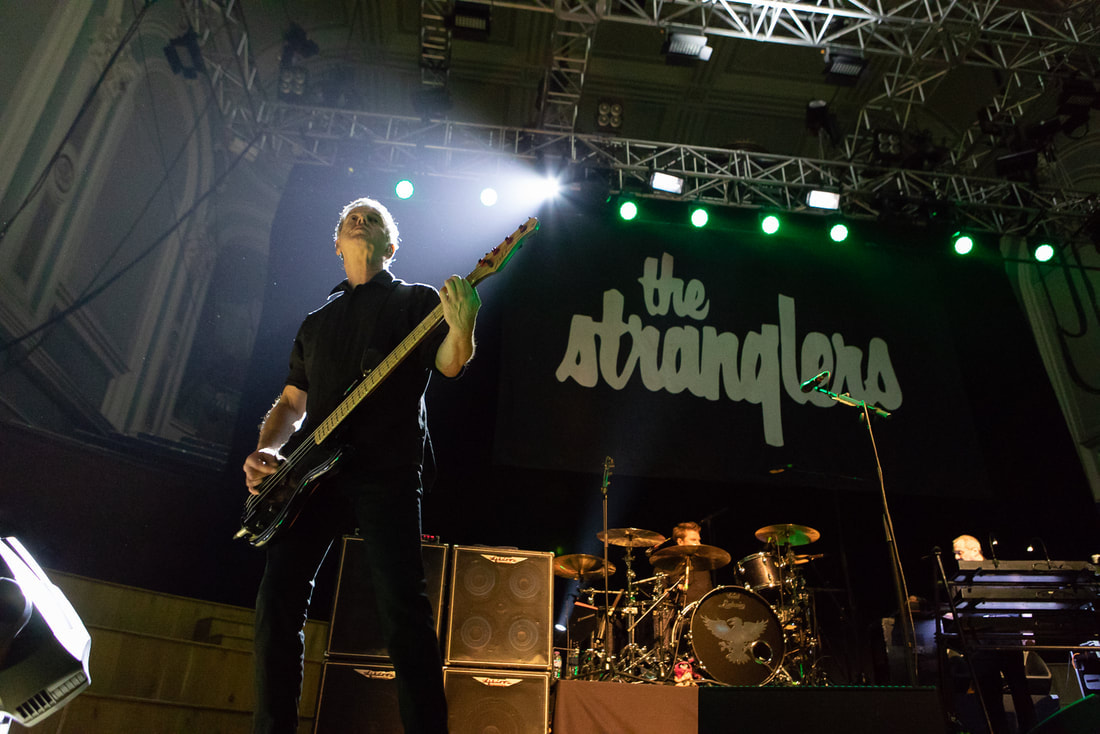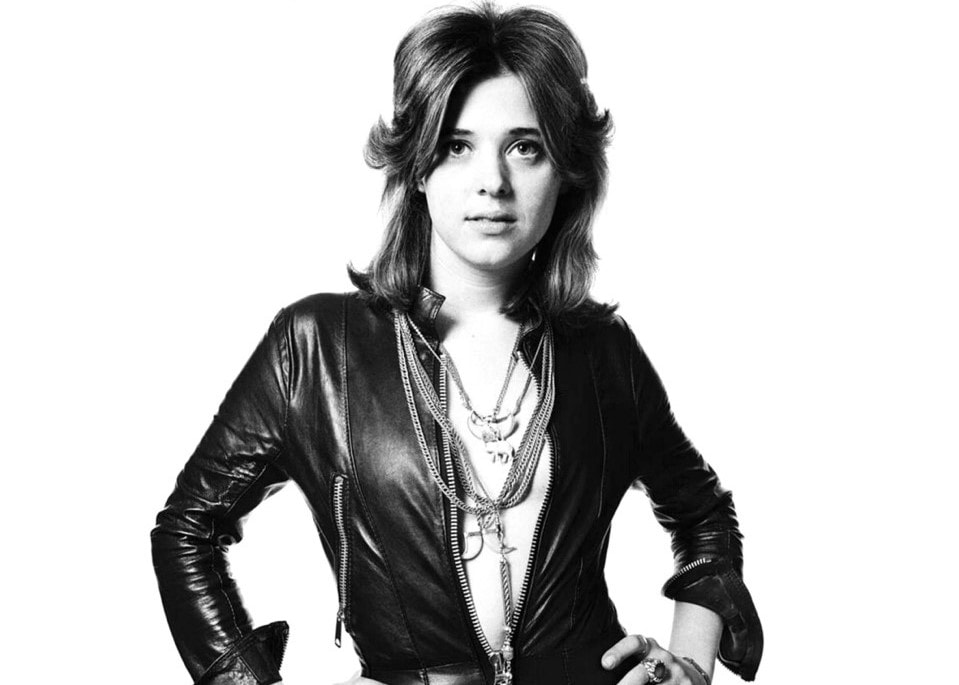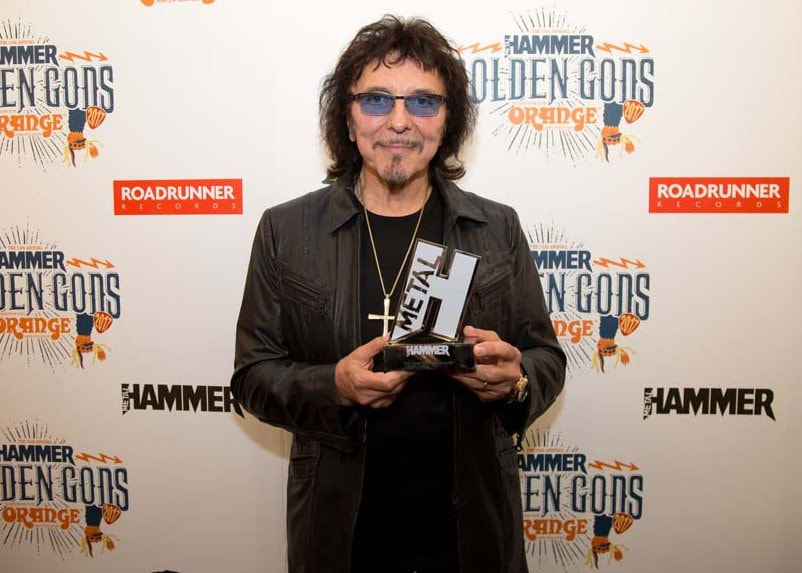|
As leader of The Stranglers, Hugh Cornwell was the main song writer behind some of their most memorable material. Solo for more than three decades, 2022 sees the release of his tenth solo album ‘Moments of Madness’, and an extensive UK tour in November and December. An album of acute, pithy, and witty observations and social commentary, it confirms the singer guitarist as the poet laureate of the punk era and beyond. We sat down with Hugh for a chat about the album, his approach to the guitar, and his love of the Fender Telecaster. Coming out of the wilderness; Eamon O’Neill.
Hi Hugh, how are you today?
Yeah, I’m doing good. There’s lots of pre-production before the tour, and lots of promotion and stuff. Luckily it’s not back-to-back because I’d get really bored if it was constant because I’d end up saying the same thing, like being on a tape. They’re spread out, so it’s a bit more user friendly for me. We’re here to talk about your new album ‘Moments of Madness’, and the first single people will have heard is ‘Coming Out of The Wilderness’. It’s pretty straightforward. That one worked quite well with the basics. I mean, talk about going down quickly; as soon as I got the title, that was it! It was immediate, I thought; “oh, what a great title!” I was inspired, and it was written and recorded in a day. It really was that ridiculously quick. Was the title related to the world’s re-emergence after the lockdowns? Yeah, I guess it was my poetic licence getting used. The thing is, I spend a lot of time in London, and during lockdown, London was closed, so there was absolutely no attraction to being in London because the whole point of being in London is when things are open; if it’s all closed, there’s no point in being there. A lot of people talk about running away from the city to the countryside; well, ‘Coming Out of the Wilderness’ is the other way around. It sounds like something that was very relatable to you. Well, once London opened up again I was there quickly because you do get cabin fever when you’re in the country for too long. It’s very nice, and we were able to work in the studio, but you still get a bit of cabin fever, and you can’t get away form that, so it’s bound to happen. The track comes from what is your tenth solo album; that’s quite an achievement!
Is it? I don’t know! Is that a lot? I don’t know! I did ten Stranglers albums, and now I’ve done ten solo albums, so it’s about the same, but that was done in a lot quicker time; that was done in seventeen years, and, well, ‘Wolf’ [debut solos album] came out in ’88, so thirty-four years… oh, it’s twice as long! It’s taken me twice as long! Back then you would have been collaborating with the band and the producer, but ‘Moments of Madness’ has been self-produced. Yeah, with my engineer. He’s very good, and he can get it sounding the way I like it. We’ve worked together for a long time now, and he understands. I hardly have to speak to him because he knows what I mean, and sometimes I can leave him to work on something and then come back and I’ll say; “oh, I forgot to mention that you could do that”, and he’ll say; “oh, I’ve already done it” [laughing]. So he’s thinking ahead; he knows what I’m probably going to suggest, and it saves a lot of time when you’re working with someone like that. So this album went down a lot quicker than the last one, ‘Monster’ [2018]; we got it done in quite a bit of less time. I’m a big fan of your guitar solos, and there’s a great one on ‘Red Rose’; do you labour over your solos, or is it just another part of the song for you? It’s just another part of the song. See, I’ve never really had a lot of confidence in my guitar playing. It might sound odd to you, but I started out playing guitar to accompany my voice, because I’ve always wanted to be a singer since I was a tiny little kid. That’s always been in my head and the guitar playing was of secondary importance and it always has been, and I only learnt it to accompany myself in case there was no one else that could accompany me. And so, with that respect, I’m not a gifted guitarist. I have to work all my solos out very painstakingly because otherwise there’ll be some bum notes in there. I really am not that good, so if I do a solo, it’s always going to be more or less the same every night; there’s no embellishment. I can’t do that, and I’m glad I don’t because I only put in what the song needs; the song is the important thing, so I play whatever on the guitar that the I think it requires, and sometimes there’s no solo. One of my favourite tracks on the album is ‘I Wanna Hide Inside Aya’. Yeah, it’s that opening riff [sings riff], I just found that and, it’s a bit like ‘Coming Out of the Wilderness’ in that, all I need is a title or a riff and I go; “oh, that’s it, that’s almost written!” I don’t know what it’s going to be about, or I don’t know what the music’s going to be, but that’s enough to get me going. I think we were doing a guitar overdub on another track and I just played it by accident and I thought; “there’s a song there, oh nice!”, and so it came to pass. And lo and behold, from on high a song appeared! I also love ‘Beware of the Doll’. Oh yeah, it’s one of my favourites. I think the best songs are the simplest songs. I’m a big believer in ‘less is more’. I haven’t been carrying keyboards now for a very long time. I did when I first left the band, and I had keyboards for a couple of tours and then they became sort of superfluous and I got used to having less on arrangements, and partly because it makes it a lot easier when you’re playing it live, and ‘Beware of the Doll’, we worked on it for about an hour and then it was up and running because there’s so little on it. So that really worked. A lot of them, there’s very little; there’s a lot of noise going on, but if you look behind the scenes, there’s very little actually on there. Most of the tracks are like twelve or sixteen-track recordings. That’s pretty old school. In fact, we sent the whole lot over to Chicago and my good friend who worked with Nirvana, Steve Albini, who I’ve worked with [ on 2012’s ‘Totem and Taboo’]; I’ve kept in touch with him and he put it onto tape and back again because it makes a big difference. You get that tape warmth, and the songs where there’s less on them, you really notice it, and ‘Beware of the Doll’ you really notice how warm it’s become. It’s because of the passing back to tape. Another track like that is ‘Heartbreak at Seven’ which juxtaposes these empty verses with big dirty chords in the chorus.
Yeah, contrast! Dynamics are good; the art of song writing is dynamics. You notice this when you don’t have keyboards because putting keyboards on a song is a bit like pouring a pot of glue on it; it fills in all the gaps in between the notes, and it doesn’t lend itself to dynamics. So that’s why I like space. A good space is as important as a piece of music with notes in it. That space is especially important, leaving room for the story telling aspect of your lyrics. Yeah, a lot of them are things that have actually happened to me that I put in code because I don’t want to expose myself to that openness. I want to preserve my privacy, so there are stories that are in the songs, but there’s a cipher that only I know; a lot of it only means something to me. You can maintain some mystique and mystery! Well, I try to! [laughing]. It’s not down to trying to be deliberately mystical, it’s just I just want to preserve my privacy. I wanted to talk to you about your guitars, and from the off on the album, those big chords can only be the Fender Telecaster. Yep, absolutely. There’s Telecaster all over this album, apart from an acoustic; we put an acoustic on ‘Trash’. Do you still have your original black Telecaster that you used with The Stranglers? We had a lot of gear stolen when we were in America in the early ‘80s, I think ‘82, so I got the black Tele' that I still have in about ’82, and it’s a 1976 or 1978. I’ve got that one, and I keep that one, but I do collect Mexican Tele's, because they’re very good, and I collect different colours; I’ve got a red one, a black one, a white one, a green one, and a blue one. My spare, when I go on stage is a Mexican. I don’t need a £20,000 guitar just as a spare; it’s just if a string goes or something. And I’ve customised them; they’re all brassed up, all my guitars. So, they’ll do and actually, the red one’s in America, in Los Angeles at my friend’s house, and I’ve used that in America on tour, and it works fine. They only thing that they don’t like is festivals, because you’re outside and there’s a lot of change in humidity and temperature. So two guitars is all you need on tour these days? I am going to have to have another guitar on stage for ‘Beware of the Doll’ because it’s a slightly different tuning. One of the strings, I think the b, I have to tune it up to a c in order to play the riffs. I think I use the blue one for that, so just for that song I’m going to have to change guitars, unfortunately. Going back to your past, I wanted to ask about the beautiful guitar solo on ‘Golden Brown’; it’s so unique. Well that’s very nice of you to say that. It just happened in the studio, and I had this lovely guitar. I called it ‘The Razor’, and I’ve just done an article with a magazine called The Guitarist all about this guitar. I was given it by Hofner, and there were only two made, and I’ve got both of them. They gave them to me to road test, and I used it on the album ‘La Folie’ [1981], and it’s all over the album. The great thing about it is, it’s got a two octave neck, an it’s totally in tune at the top of the second octave; those Germans, you know? Incredible. It’s a very long neck, so I was able to play up, get really up high for that solo there, because I could, so I did, and that’s what came out. And I tell you what, if I had been playing a Telecaster, I doubt if that would have materialised, that solo; it’s only because of that guitar. So what came first; the solo, or you singing the solo melody? Oh, I think the solo came first yeah, and then I thought; “ooh, let’s do a bit of scatting”. I have to talk to you about ‘Peaches’, and in particular your vocal delivery; it’s loaded with attitude.
Well when we wrote it, it was about four o’clock in the morning, and I couldn’t sing anyway because it would have woken people up. So he [bassist JJ Burnel] was playing me this riff in this room. We’d just got back at four o’clock in the morning after renting out our PA to a reggae club, so we had sort of reggae and dub and all that in our heads, so he came up with this riff as a result of the evening that we’d just spent, and because I didn’t want to wake anyone up, I just started talking the lyrics, and thought afterwards; “well, that’s the way it should be”. That might have been the first rap song. It was in what, 1977, ’76? I don’t know if rap existed back then. Were you saddened by the passing of your former band mate Dave Greenfield in 2020? Ah, yeah, yeah, yeah, and he left the world with the music to ‘Golden Brown’. That was him, that was all him. The Stranglers covered Dionne Warwick's ‘Walk on By’, and with your love of The Doors, was the instrumental part of the song a nod to ‘Light My Fire’? Yeah, that was the inspiration for it. I mean, the thing is, when you’re writing, when you’re doing creative stuff like that, you try and emulate the stuff that you like because you think; “I like that, so I’d like to write something that’s like that because then I’d be happy”, because it’s what you like. So I’m not going to try and write a song like the Bay City Rollers because I’m not a bit Bay City Rollers fan, so you end up emulating the people that are your influences, and The Doors was one of them. I mean, the Velvets, Lour Reed, others, and so what happens is, that’s where you start from, but by the end of the writing process and the playing process, it doesn’t sound like it at all because it’s you. It’s the starting point, and the Beatles admit to that too; they’ve said that with ‘Back in the U.S.S.R.’ they were trying to write a Beach Boys song. Back to ‘Moments of Madness’, and are you looking forward to going back out on the road promoting the album? Yeah, I’ve been doing a few festivals over the summer, and I’ve been going out as special guests with The Undertones throughout the year. They’re a bunch of laughs, and they’re a great bunch of guys. So it’s not something brand new that I’ve got to re-learn because I’ve been on it all this year, on and off, but yeah, it’s pretty intense for a few weeks. We put this tour in a year ago, last summer, and I’m so glad that we did because it meant that we could do them all at the same time, and it’s going to be good for the performances too. If you keep stopping and starting it’s not good for your playing juices, your performance juices. Finally, I have to ask, should the Rock and Roll Hall of Fame or whomever come knocking, would you get back on stage with The Stranglers one last time? No, it’s not even same band. If it was the same people... you can’t do anything about it; Dave’s died, and Jet [Black] can’t drum anymore, so there’s no way I’m going to go on stage with some people I don’t even know. So, unfortunately, that’s not going to take place. Like this interview? Like us on Facebook and follow us on Twitter for regular updates & more of the same. Hugh Cornwell’s new album “Moments of Madness” is released October 21. He tours the UK from November 4 until December 6. Album and ticket details are available from www.hughcornwell.com |
|
Hugh Cornwell
"And lo and behold, from on high a song appeared!"
© 2016 - 2024 eonmusic.co.ukContact: [email protected]
|

